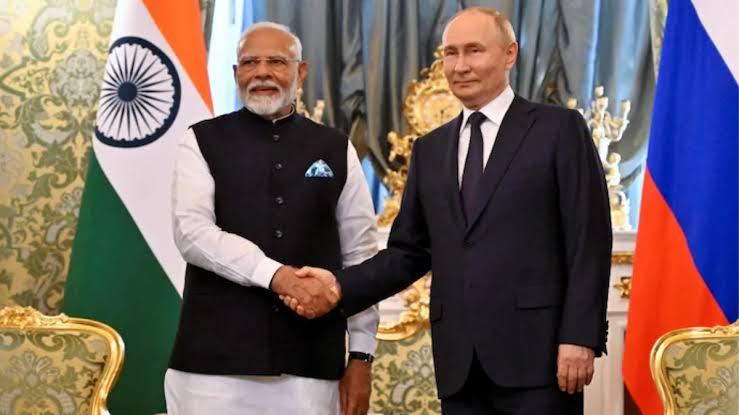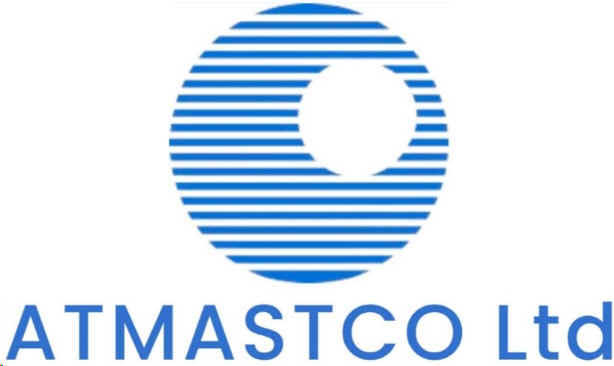 Image Source: The Financial Express
Image Source: The Financial Express
Russia and India are set to deepen their strategic energy collaboration significantly in 2025, focusing on expanding nuclear energy projects and exploring potential liquefied natural gas (LNG) exports to India. These developments reflect the growing partnership between the two nations amid shifting global energy dynamics.
Key Highlights:
-
Russia aims to expand cooperation in nuclear energy with India, including advancing current projects and exploring new avenues for technology transfer and localization.
-
The potential for Russia to export LNG to India is being actively explored as part of broader energy ties.
-
High-level officials, including Russia’s First Deputy Prime Minister Denis Manturov, have reaffirmed commitments to ongoing projects and discussed future strategic cooperation.
-
India continues its ambitious plans to increase its nuclear energy capacity, targeting a rise from 7,480 MWe today to 22,800 MWe by 2031-32.
-
Russia’s expertise in nuclear technology, including small modular reactors (SMRs) and advanced reactor designs, is central to the partnership expansion.
-
Discussions also cover non-energy applications of nuclear technology, such as water desalination and seed/food irradiation.
-
Russia is tailoring its LNG offerings, including from sanctioned Arctic LNG projects, to meet India’s growing energy needs despite external geopolitical pressures.
Nuclear Energy Cooperation in Detail
The cornerstone of the Russia-India energy partnership remains nuclear cooperation, with significant progress made at the Kudankulam nuclear power plant (NPP) in Tamil Nadu. Russia is deeply involved in constructing six VVER-1000 MW reactors at Kudankulam, with two already operational and additional units under construction. Plans are underway to build a second site in India, possibly including six new Russian-designed units.
During recent discussions, Denis Manturov highlighted Russia’s commitment to adhering to existing schedules and fostering technology localization. Russian officials have emphasized moving toward the so-called “fourth generation” of nuclear reactors, including fast-neutron reactors and further modifications of the VVER technology. The collaboration also aims to cover the nuclear fuel cycle comprehensively to ensure sustainability and self-reliance.
Additionally, Russia is offering the possibility of small modular reactors (SMRs) to India. SMRs are advanced nuclear technologies characterized by smaller physical size and modular construction, making them adaptable for diverse applications including electricity generation and regional energy needs. India’s Maharashtra state has already signed a memorandum of understanding with Rosatom for thorium-based SMRs, indicating a deepening technological collaboration.
Beyond power generation, the partnership extends into peaceful applications of nuclear technology in industrial and agricultural sectors, enhancing India’s technological capabilities.
Exploring LNG Export Potential
Complementing the nuclear agenda, Russia sees substantial potential in exporting LNG to India. Russia’s vast natural gas resources, especially from Arctic LNG projects, offer a competitive energy source for India’s growing demand. Despite sanctions and tariffs imposed by Western nations on Russian energy exports, Russia is actively engaging Indian buyers to secure long-term LNG deals.
First Deputy Prime Minister Manturov has underscored Russia’s interest in diversifying and expanding energy trade to India, aligning with India’s objective to secure diverse energy sources for its growing population and economy. As LNG imports currently account for a significant share of India’s energy mix, Russian LNG could play a strategic role in balancing energy security and cost-effectiveness.
Strategic and Economic Context
India’s increasing energy demands, propelled by rapid economic growth and industrialization, require scalable and reliable energy sources. Nuclear energy’s expansion and diversification into LNG options are part of India’s broader energy transition plan aimed at reducing carbon emissions and achieving energy security.
The ongoing Russia-India cooperation reflects a mutual strategic interest, leveraging Russia’s technological expertise and resource base with India’s expansive energy needs. These efforts are also embedded in wider economic and technological dialogues, including trade diversification, digital cooperation, and space technology collaboration.
In conclusion, Russia’s focus on expanding nuclear energy cooperation and exploring LNG export opportunities to India marks a new chapter in their energy partnership. This collaboration aligns with India’s ambitious energy goals and showcases the strategic resilience and depth of Russia-India relations in a complex global energy landscape.
Sources: RIA Novosti and Reuters, these developments highlight forward-looking engagement strategies between Russia and India to address mutual energy challenges and opportunities in 2025.
Sources: RIA Novosti, Reuters.
Advertisement
Advertisement





